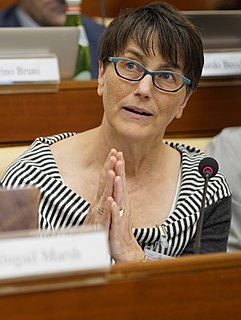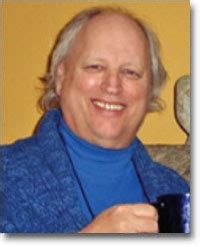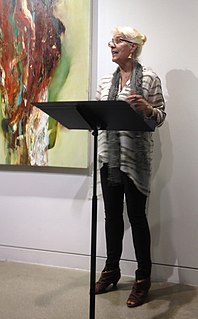A Quote by Mark Ravenhill
The American journalist Barbara Ehrenreich has written about this in her book Smile or Die: How Positive Thinking Fooled America and the World (2009) . She talks about the happiness industry, the rise of medication to make us happy and of self-help books, and the influence of all this on religion. In many ways religion has become another form of self-help. We all suffer from over-exposure to positive thinking.
Related Quotes
Do yourself and your family a favor: Decide right now that you will write a self-help book someday. I'm serious. A self-help book is a great way to capture what you think makes a good person, a good life and a good world. It's also a "forever document" that you can pass down to future generations. We need more people sharing positive messages and books with the world. Why not be one of those people?
Religions, of course, have their own demanding intellectual traditions, as Jesuits and Talmudic scholars might attest.... But, in its less rigorous, popular forms, religion is about as intellectually challenging as the average self-help book. (Like personal development literature, mass market books about spirituality and religion celebrate emotionalism and denigrate reason. They elevate the "truths" of myths and parables over empiricism.) In its more authoritarian forms, religion punishes questioning and rewards gullibility. Faith is not a function of stupidity but a frequent cause of it.
Positive thinking is just one small part of positive psychology. Plus, as an approach to well-being, positive thinking only helps you to the extent that it yields one or more positive emotions. The problem with positive thinking is that it sometimes just stays up "in the head" and fails to drip down to become a fully embodied experience.
While holding positive thoughts and emotions is advantageous, positive thinking itself is not "Hallmark Card thinking." It's really an ongoing awareness that all truly is well with the world, with life, and with oneself. It's also a commitment not to mindlessly pass on fears but to bring positive energy, images, ideas, and feelings into the lives of others, to help them attune to the wellness at the heart of the world.
My all-time favorite topic in positive psychology is the study of positive emotions. I'm fascinated by how pleasant experiences, which can be so subtle and fleeting, can add up over time to change who we become. I'm especially excited these days about investigating how positive emotions change the very ways that our cells form and function to keep us healthy.
Somewhere along the line, positive thinking seems to have been confused with magical thinking. There's a notion that if you think positively enough, you can make anything happen by using the power of your mind. All the positive thinking in the world won't deliver good fortune or prevent tragedy from striking.
You all know that certain things are necessary to make a religion. First of all, there is the book. The power of the book is simply marvellous! Whatever it be, the book is the centre round which human allegiance gathers. Not one religion is living today but has a book. With all its rationalism and tall talk, humanity still clings to the books. In your country every attempt to start a religion without a book has failed. In India sects rise with great success, but within a few years they die down, because there is no book behind them. So in every other country.
The journey toward authenticity, toward becoming whole is made palpable in Maureen Seaton's Sex Talks to Girls: A Memoir. It shines its considerable light on the passage from religion toward faith, from self-medication to sobriety, from daughterhood to motherhood, from being the disembodied 'good girl' to embracing her own bad lesbian self. In crisp chapters, Seaton leads us, step-by-step, over this harrowing and blissful road, so distinct from yet so much like our own.
The Model Sanctuary is not about self-indulgence - it's about reminding and allowing them to become self-sufficient human beings. I wanted to alert people to the fact that we're not the victims, but nor are we the villains. We want fair practice and positive, sustainable change, working with the fashion industry, not against it.





































